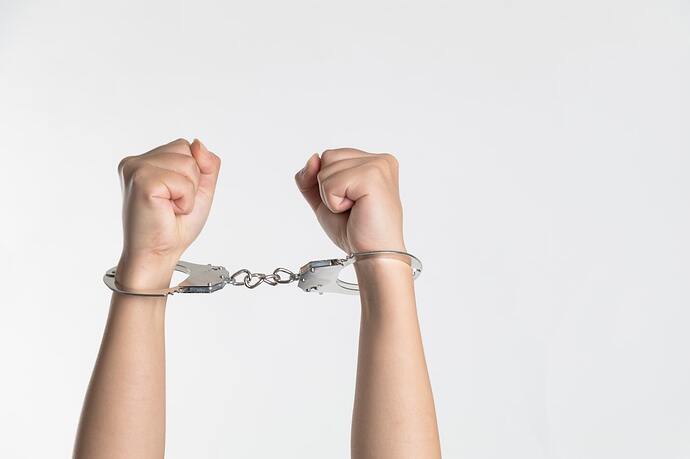Arrest is the process of taking a person into custody by law enforcement officials. It is the first step in the criminal justice system for accused individuals. An arrest is typically made when sufficient evidence exists to indicate that the individual has committed a crime. The evidence must be based on probable cause, which means that there is enough evidence to make it more likely than not that a crime has been committed.
In the United States, arrests are governed by the Fourth Amendment to the Constitution which protects Americans from unreasonable searches and seizures. The amendment requires that all searches and seizures be reasonable and that warrants be issued only upon probable cause.
Depending upon the situation, arrests may be made with or without a warrant. A warrant is a written order from a judge or magistrate that authorizes law enforcement officials to take a particular person into custody. Warrants may be issued when law enforcement has probable cause to believe that a person has committed a crime.
When an individual is arrested without a warrant, it is called an arrest without a warrant or a warrantless arrest. Such arrests are executed by police who have probable cause to believe that an individual has committed a crime. Law enforcement officials also have the power to make an arrest when the individual is committing a crime in their presence or immediacy.
The arrest process begins with the police officer identifying themselves and informing the individual that they are under arrest. This is usually followed by the officer informing the individual of the charges against them. At this point, the individual is formally taken into custody and is no longer free to leave. The arrestee may be handcuffed or otherwise restrained to prevent any attempt to escape.
Once the individual has been taken into custody, they are transported to a police station, jail, or other detention center. At this point, they will be booked into the system. Booking typically involves the arrestee being fingerprinted, photographed, and having their personal information recorded for future identification purposes.
Following booking, the arrestee is put in a holding cell until they appear before a judge or are able to post bail. Bail is a sum of money paid to the court as a guarantee that the individual will show up for their court appearance. If the arrestee cannot post bail, they will remain in custody until their trial.
After an individual has been arrested and booked, they have certain legal rights that must be respected. The most important of these rights is the right to an attorney. This allows the individual to have legal representation at their trial. An attorney can help the arrestee understand their rights and defend themselves against the charges.
In conclusion, arrest is the first step in the criminal justice system for accused individuals. It is a process that involves law enforcement officials taking an individual into custody when sufficient evidence exists to indicate that the individual has committed a crime. The individual is then booked and their legal rights are protected. Arrest serves as an important tool for law enforcement officials to maintain peace and ensure that those who break the law are held accountable for their actions.
Disclaimer
6do Encyclopedia represents the inaugural AI-driven knowledge repository, and we cordially invite all community users to collaborate and contribute to the enhancement of its accuracy and completeness.
Should you identify any inaccuracies or discrepancies, we respectfully request that you promptly bring these to our attention. Furthermore, you are encouraged to engage in dialogue with the 6do AI chatbot for clarifications.
Please be advised that when utilizing the resources provided by 6do Encyclopedia, users must exercise due care and diligence with respect to the information contained therein. We expressly disclaim any and all legal liabilities arising from the use of such content.











